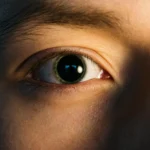When someone struggles with a long-term addiction to drugs, effects on their physical and psychological health occur. Depending on the substance and the severity of your addiction, it may be challenging to overcome dependency on substances without the support and guidance of a professional addiction treatment center. Drug detox and withdrawal are complicated, and the symptoms and challenges each person experiences are unique to their addiction. In some cases, withdrawal can lead to potentially dangerous and even fatal side effects. For this reason, it is essential to detox under medical supervision at a professional drug rehab.
What Are the Signs of Detoxing From Drugs?
When someone is detoxing from drugs, the signs and symptoms will vary. Detox symptoms are typically unique to the person, the type of drug they used, how long they struggled with addiction, and the severity of their use. In addition to substance-specific symptoms, there are various signs of detoxing from drugs that are common across most situations. These include restlessness, aches and pains, difficulties with sleep, appetite changes, irritability, mood, behavior changes, and respiratory problems.
Other signs that commonly occur include nausea, vomiting, shakiness, and sweating. Some people experience more severe symptoms that require medical support and supervision during detox. These are hallucinations, seizures, cardiac and respiratory failure, and DTs (delirium tremens).
Several types of drugs can lead to withdrawal (or detox) symptoms when you stop using or reduce how often you use. Drugs such as antidepressants, barbiturates, cannabis, depressants, hallucinogens, inhalants, opioids, stimulants, and alcohol all lead to a range of withdrawal symptoms, which can be mild, moderate, or severe.
Often, signs of detox are the opposite of the effects experienced from taking the drug. For example, depressant drugs slow the activities of the central nervous system. When someone drinks, they experience relaxation and a reduction in inhibitions. When they suddenly stop drinking or reduce the amount they drink, symptoms such as anxiety, restlessness, and excitability occur.
Why You Should Detox From Drugs at a Professional Facility Today
Withdrawal symptoms are a part of detoxing from drugs for someone who enters addiction treatment. Depending on the nature and severity of your addiction, withdrawal can lead to intense and sometimes overwhelming symptoms. In some cases, medical intervention is necessary to ensure safety. When you choose to detox alone, medical help is not available to assist with these symptoms.
The duration and severity of withdrawal symptoms will depend on your specific circumstances. Signs of detoxing from drugs may begin in as few as a couple of hours and last for up to ten days. In most cases, the most difficult symptoms appear within the first 48-72 hours.
Detoxing at a professional facility ensures you will have the support and guidance you need to manage withdrawal symptoms. At a professional detox center, trained medical staff are available to monitor vitals and provide medical and emotional support throughout the most challenging stages of detox. Once detox is complete, it is possible to seamlessly transition into the therapeutic portion of an addiction treatment program.
Seeking treatment at a professional treatment center is an essential step towards achieving and maintaining lasting health and sobriety. At California Recovery Center, we will work with you to ensure that all stages of your treatment program focus on helping you achieve your treatment needs and goals. Our treatment plans are based on evidence-based therapy models that focus on addressing your physical, psychological, and spiritual needs to ensure you receive the most comprehensive treatment possible.
To learn more about how our addiction treatment programs can help you detox and recover from drug addiction, contact our admissions team today.
What Are the Symptoms of Detoxing?
The truth is, detox symptoms can vary widely, but most people notice both physical and emotional changes during this process. Some of the most common include:
- Muscle aches and body pain
- Restlessness or difficulty sitting still
- Changes in appetite or sudden weight fluctuations
- Difficulty sleeping or frequent nightmares
- Excessive sweating or chills
- Mood swings, depression, or anxiety
These symptoms are temporary but can feel overwhelming. Having medical professionals available ensures that the detox process is both safe and more manageable.
What Are the Symptoms of Drug Withdrawal in Adults?
Adults going through withdrawal often experience a combination of mental and physical challenges. Some of the most common include:
- Physical: nausea, vomiting, shaking, fatigue, headaches, sweating, irregular heartbeat, and flu-like symptoms.
- Psychological: anxiety, depression, paranoia, irritability, and difficulty concentrating.
For some substances like alcohol, benzodiazepines, or opioids, the withdrawal symptoms can be particularly severe and require constant monitoring. Adults with long-term addictions or co-occurring health conditions are especially at risk of experiencing dangerous complications if they attempt detox without professional care.
How Long Does the Body Take to Detox From Drugs?
While the answer depends on the drug, the length of use, and a person’s overall health, most withdrawal symptoms follow a timeline:
- Early symptoms: Within a few hours of last use, early discomfort begins, such as irritability, cravings, and restlessness.
- Peak symptoms: Between 48–72 hours, symptoms are usually the most severe. This is the stage where medical supervision is most critical.
- Improvement: After about 5–10 days, most symptoms start to lessen. Some psychological symptoms, such as anxiety or depression, may linger longer.
It’s important to remember that detox is only the first step. While the body may clear the drugs in about a week, the brain and emotions need longer to heal, which is why professional rehab following detox is essential.
What Are the Symptoms of Coming Off Drugs?
The phrase coming off drugs refers to the withdrawal process. What are the symptoms of coming off drugs? Most people describe it as an intense adjustment period where the body and brain learn to function without substances.
These symptoms may include:
- Fatigue and exhaustion
- Intense cravings for the drug
- Trouble focusing or remembering things
- Stomach upset, nausea, or diarrhea
- Headaches and dizziness
- Mood changes, from irritability to deep sadness
The experience of coming off drugs can be different for everyone, but nearly all individuals benefit from support, guidance, and medical monitoring during this time.
The Importance of Professional Detox in Recovery
Detox is not recovery on its own—it is only the first step. But it is a crucial one. By safely clearing substances from the body, detox prepares individuals to begin deeper work in therapy and long-term treatment.
Our medical detox programs provide:
- 24/7 monitoring and support
- Medications, when appropriate, to ease symptoms and reduce cravings
- Therapeutic support to manage stress, fear, and emotional struggles during detox
- Smooth transitions into residential or outpatient programs for continued care
Recovery is a journey, and detox provides the foundation for healing the mind, body, and spirit.
FAQs About Drug Detox and Withdrawal
What are the symptoms of detoxing?
They can include restlessness, sweating, sleep issues, nausea, mood swings, and in severe cases, seizures or hallucinations.
What are the symptoms of drug withdrawal in adults?
Adults often experience physical symptoms (shakiness, fatigue, nausea) as well as psychological symptoms (depression, cravings, anxiety).
How long does the body take to detox from drugs?
For most substances, detox takes between 5–10 days, but symptoms may begin within hours and peak within the first 2–3 days.
What are the symptoms of coming off drugs?
Fatigue, cravings, mood changes, stomach issues, and sleep problems are among the most common.
Begin Healing at California Recovery Center
Detox can be overwhelming, but you don’t have to go through it alone. With professional medical care, the process becomes safer, more comfortable, and more effective.
At California Recovery Center, we are here to guide you every step of the way. From supervised detox to evidence-based therapies and long-term support, our programs are designed to help you achieve lasting recovery.
If you or a loved one is ready to take the first step, contact our admissions team today. Recovery is possible, and it can begin right now.




